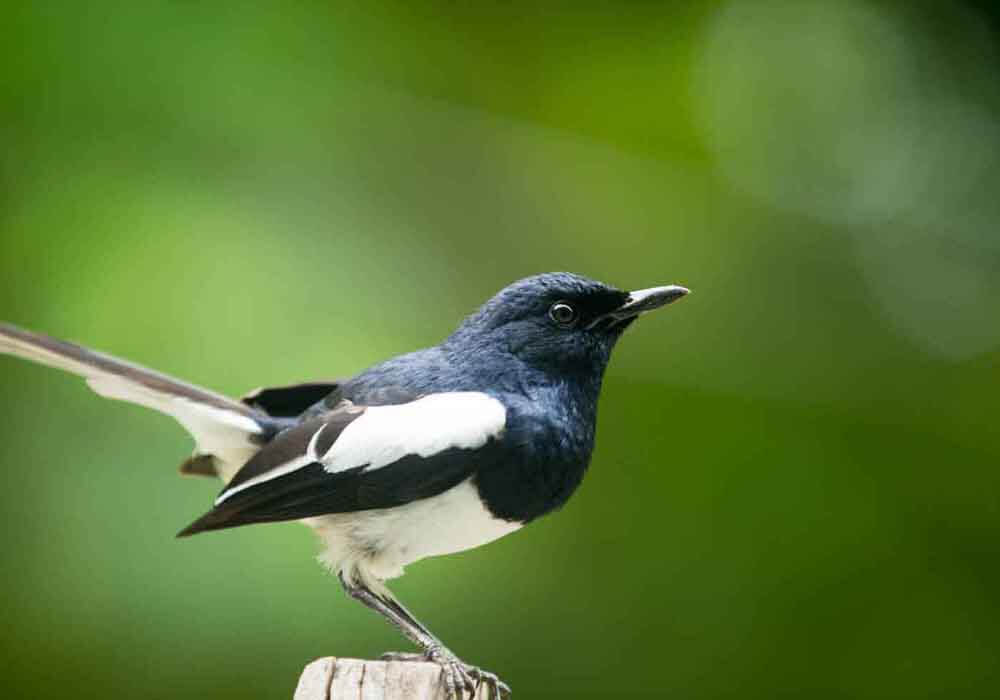Why Are Birds Important?
They Contribute More To Our World
Than You Might Think!
When considering the value birds add to our environment, several important factors come to mind. Likewise, human beings rely on birds for a wide variety of purposes. So, why are birds important?
Birds are important because humans rely on them as a food source, for pest control on farms, for economic growth, and for innovation. Environmentally, birds play essential roles in pollination, seed dispersal, fertilization, cleaning up the environment, and spreading nutrients in the ocean.
This article will dive deeper into the importance of birds to humans and the environment. Continue reading to discover enlightening facts that motivate you to engage in habits that make the world more habitable for these valuable creatures.

Why Are Birds Important to Humans?
Across the world, different cultures and groups have found different uses for domesticated and wild birds. Not only do we rely on birds for essential functions, but also for recreation and leisure purposes.
Birds are important to humans because they make for an essential food source and help fertilize our land and reduce pest infestation. Moreover, they hold recreational and economic importance, all while inspiring innovation.
Essential Food Source
Another reason why birds are important is because they provide an essential food source as they provide both meat and eggs, which are a staple in many diets. Edible bird meat is a rich source of the following nutrients:
- Protein (specifically lean protein)
- Vitamins
- Minerals
- Fat
The most famous bird meat (worldwide) is chicken meat, and this is due to the following reasons:
- Relatively cheap to raise
- It is rich in lean protein (low in fat).
- Chicken meat is diverse and can be incorporated into a variety of recipes.
- Acceptable by most cultures and religions
- It is pretty tasty and relatively easy to prepare.
Overall, birds contribute to food security by providing an affordable and nutritious food source to millions worldwide.
Bird Droppings Fertilize Land
Farmers rely on bird droppings as a source of inexpensive, organic fertilizer that effectively improves crop yields. Moreover, it is an environmentally friendly option and poses no threats to animals.
These bird droppings enrich the soil with phosphorus, which plays a significant role in photosynthesis and, subsequently, plant growth. Nonetheless, you should note that the proper way to fertilize with bird droppings is to compost them and not to add them directly to the soil, as they can burn young plant roots and shoots.
You can harvest bird droppings from domesticated birds.

Globally speaking, birds are dying off in record numbers...but why? Is it caused by man? or is it a part of a natural cycle? We discuss the question of Why Are Birds Dying Off in this article of ours.
Birds Are Great For Pest Control
Perhaps we can say that one man’s poison is another bird’s food because that is how birds help us to control pests that threaten crop yields: by feeding on them. These species are known as insectivorous birds.
An interesting fact about birds is that their breeding season happens when insect populations are at their peak. This alignment is constructive in mitigating the effects of these destructive pests because there are now more birds to prey on them and reduce the infestation.
Insectivorous birds feed on insects at each growth stage, making them quite effective at pest control.
Recreational Importance of Birds
Here are the main ways that birds are used for recreation:
- Bird watching
- Bird hunting
Bird watching is a relaxing recreational activity that many describe as an avenue for connecting with nature. Additionally, it is very beneficial to your mental health because you can unwind and disconnect from the daily stresses of everyday life as you enjoy the thrilling sights and sounds of birds.
Bird hunting is another recreational activity that some enjoy. Various government conservatories allow the hunting of birds such as ducks, geese, and pheasants for their meat (or just for the thrill of it). In addition to collecting revenue from these acts, some proceeds go toward environmental conservation efforts due to the federal duck stamp issued in 1934.
Birds also encourage ecotourism, where people travel to new places to engage in environmental conservation in one way or another. Ecotourism creates environmental awareness and promotes positive environmental practices by both tourists and hosts.
Here's a great video from the National Audubon Society
further explaining why birds are so important...
Economic Importance of Birds
There are several ways that birds make a positive contribution to the economic growth of individuals and countries, and most of these have to do with the buying and selling of birds and their byproducts.
Whether for food, pets, or ornamental purposes, bird breeding creates employment opportunities and serves as a source of income for individuals, businesses, and countries.
Food industries rely on bird meat, bones, and eggs as core ingredients for their products. Additionally, pillow and garment industries rely on bird feathers because they provide lightweight, durable, and warm stuffing for these items.
Bird watching and bird hunting activities are also employment creation and income-generating opportunities for both governments and individuals.
Because birds are natural predators of common plant pests, they reduce the cost of pesticides incurred by farmers when controlling pest populations. Furthermore, they contribute to better plant yields by preying on these destructive pests.
Birds Inspire Innovation
If you have ever seen a plane flying in the sky and thought it looked just like a bird, you were not wrong. In many aspects, birds have inspired the design and operation of airplanes.
Here are some ways in which airplane engineers borrow inspiration from birds:
- Wings that adapt to different types of flight
- Streamlined shape to overcome air resistance
- Light framework
- Flaps that mimic feathers
Birds have also been the inspiration for the engineering of drones.
Why Are Birds Important to the Environment?
Birds are important to the environment because they aid pollination, seed dispersal, fertilization, and help clean up the environment while also spreading nutrients in seas and oceans.
Pollination
Pollination is the transfer of pollen (male gametes) from the male part of a flower to the female part. This process leads to plant fertilization and seed production, enabling plants and trees to reproduce.
Birds play a significant role in pollination and, more so, nectar-sucking birds. As birds reach in to suck nectar, pollen grains get attached to their bills and feathers. They are then transferred to the female parts of the same or other flowers during movement, fertilizing them.
Seed Dispersal
Seed dispersal is the process by which seeds are distributed from the mother plant to grow elsewhere. It ensures that plants grow a healthy distance apart, so they do not compete for nutrients and water.
Birds facilitate seed dispersal in various ways, as highlighted below:
Fertilization
- They ingest the seeds and pass them in different locations during excretion
- Seeds may also attach to the birds’ feathers as they move during feeding and drop off elsewhere as the birds move about.
- Birds may also shake seeds off the plant as they feed on the nectar or through contact with the plants while in transit.
Similarly to farmed plants, plants and trees in the wild also benefit when fertilized by bird droppings. As stated previously, bird droppings are rich in phosphorus, essential to photosynthesis and plant growth. This, along with other factors, helps sustain wild plants and trees, positively impacting the environment which is another reason why are birds important.
Cleaning Up the Environment
When animals die in the wild, their carcasses begin to decompose due to the presence of bacteria and fungi. If the animal dies from an infectious disease, the pathogens responsible are likely still present in the carcass and can easily spread to other animals.
Thankfully, scavenger birds such as crows and vultures feed on dead animal carcasses. By doing so, they clean up roadsides and prevent the spread of diseases.
Spreading Nutrients in Seas and Oceans
Seabirds contribute to the ocean’s ecosystem in a significant way.
These birds rely on the ocean for their food. As they move through, they release droppings into the water. These droppings contain essential nutrients that promote the growth of coral reefs in the sea. Fish that survive on coral reefs therefore thrive and increase in population.
This nutrient recycling cycle is very important in maintaining a healthy fish population in oceans and seas.
Birds as Indicators of the Overall Environment
One importance of birds that impacts both human beings and the environment is that they help us to identify significant changes in environmental factors and determine the state of our environment concerning our well-being.
Birds pick up quickly on changes in their habitat and surroundings and subsequently change their behavior to adapt to the new conditions. For instance, coal miners would take canary birds with them because the birds are highly sensitive to toxic gasses like carbon monoxide, which are prevalent in mines.
As long as the birds behaved normally, the miners would be reassured that the air quality was safe for work. However, as soon as the birds began to indicate distress, the miners would promptly leave the mine to avoid poisoning.
Scientists today study changes in bird populations, specifically a decline in the number of birds in an area, as this usually indicates an environmental problem. They then use these indications as a basis for conducting further research.

Here's a few more bird articles of ours which you'll enjoy...
-The Life Cycle of a Bird
-How Can Birds Land on Power Lines and Not Get Shocked?
Why Are Birds Important...Final Thoughts
Birds offer immense benefits both to human beings and the environment. Therefore, they should be conserved at all costs to prevent extinction.
Some birds, such as chickens, are good for food, others, like peacocks, for ornamental purposes, while others, like parrots, serve as loyal pets. Regardless of how they contribute to our well-being or the environment, there is no doubt that they are invaluable gifts from nature.
Back To The TOP Of This
Why Are Birds Important Page

About the Author...
Richard Worden, a dedicated bird lover for over 20 years, I love to share my in-depth knowledge and passion for birds. Read more About Me and my expertise in this field.
- We Know Birds HOME ›
- Bird Facts and Information ›
- Why Are Birds Important?
